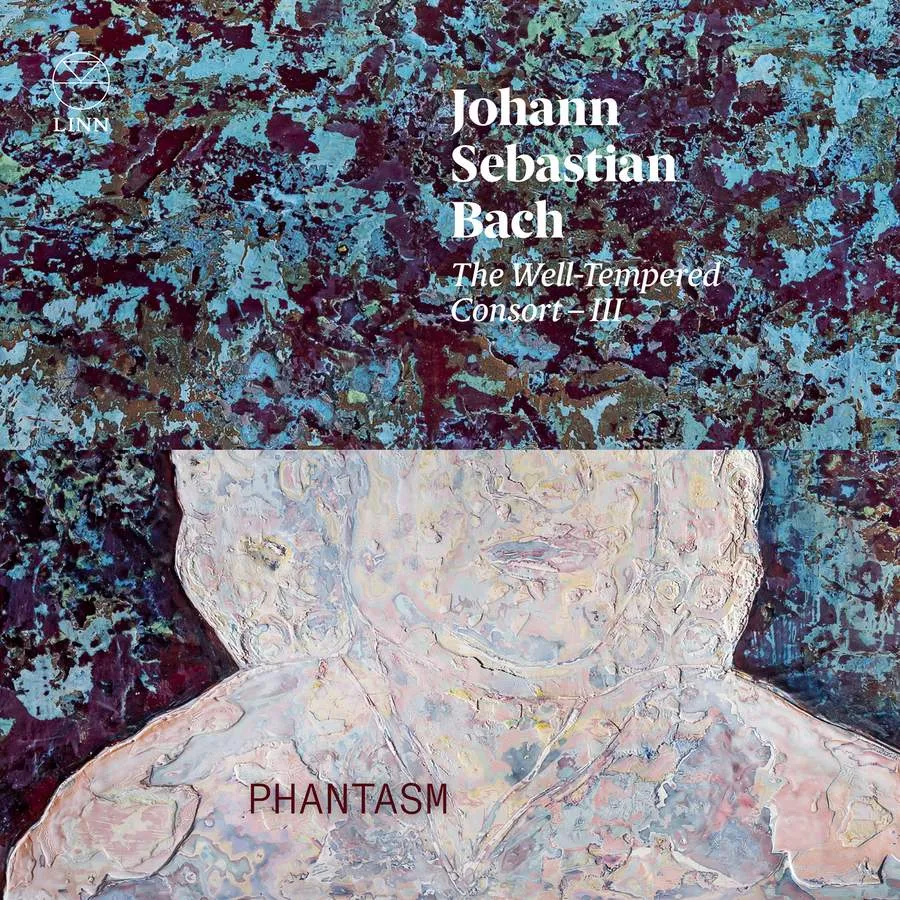
JS Bach The Well-Tempered Consort III – Fantasia in G major ‘Pièce d’orgue’, BWV 572; plus selections from The Well-Tempered Clavier, Books I & II, Clavier-Übing III and Inventions and Sinfonias (arranged for three, four and five viols by Laurence Dreyfus) Phantasm Linn Records CKD708 65:14 mins
The Well-Tempered Consort III marks the completion of Phantasm’s triptych in which selections of keyboard music by Johann Sebastian Bach are recast as chamber music for a consort of viols. Since the ensemble was founded by Laurence Dreyfus in 1994 it has garnered a well-deserved international reputation both on the concert platform and in the recording studio. Recent projects include The Art of Being Human, an acclaimed interdisciplinary collaboration combining 16th- and 17th-century music with dance and fine art, conceived for and realised in the Pierre Boulez Saal of Berlin’s Barenboim-Said Academy.
JS Bach played the viol, his affection for the instrument permeating both sacred and secular works. The viol was also held in high esteem by his contemporaries Johann Christoph Weigel and Johann Philipp Eisel, who recognised the sweet pleasure it brings the listener, according it a status as one of the most delicate instruments when played well.
The 27 tracks on this album, Phantasm’s seventh for Linn, are drawn primarily from the two books of Bach’s Well-Tempered Clavier, and the third volume of the Clavier-Übung where Lutheran doctrine is manifest in music. We are also treated to two of the sinfonias and the Gravement from the ‘Pièce d’orgue’. Dreyfus’s arrangements of this music, variously for three, four or five viols, bears testimony to the fluidity of a musical work, an aspect which Bach himself exploited. Judiciously chosen tempos, elegant melodic inflection, delicate tempo rubato and textural sensitivity combine to showcase the acoustics of Berlin’s Altglieniche Evangelical Church. Dreyfus’s programme notes are characteristically erudite and informative.
Reimagined for a trio of viols, the F major Prelude and Fugue from the second book of the Well-Tempered Clavier conveys the tender melancholy of this key noted by 18th-century writers. Arranged for four viols, three Kyries from the Clavier-Übung blend the sacred and the profane. Their harmonic ingenuity is here revealed anew through the timbre of bowed string instruments, especially in the two chorale prelude fughettas, BWV 672 and BWV 674. Sixteen numbers celebrate Bach’s command of fugal writing, including the sprightly B minor Fugue from WTC, Book II and the D major Fugue (WTC, Book I) with its synthesis of the French overture. Of three fugues from the Clavier-Übung, the complex counterpoint in the monumental Fuga super Jesus Christus, unser Heiland, BWV 689 achieves a profound clarity in this version for four viols. The album’s absolute zenith is the final track, where we hear all five players in the middle Gravement section of the G major Fantasia or ‘Pièce d’orgue’, BWV 572. Coupled with an authority and conviction one rarely encounters, this intensely moving and highly intimate music-making reduced me to tears on my first hearing.
This is a truly outstanding album, which rewards the listener with profound aural pleasure. Through the intimacy of the viol consort these keyboard works are clothed in a new timbral mantle, equally sumptuous and revelatory.
Ingrid Pearson
